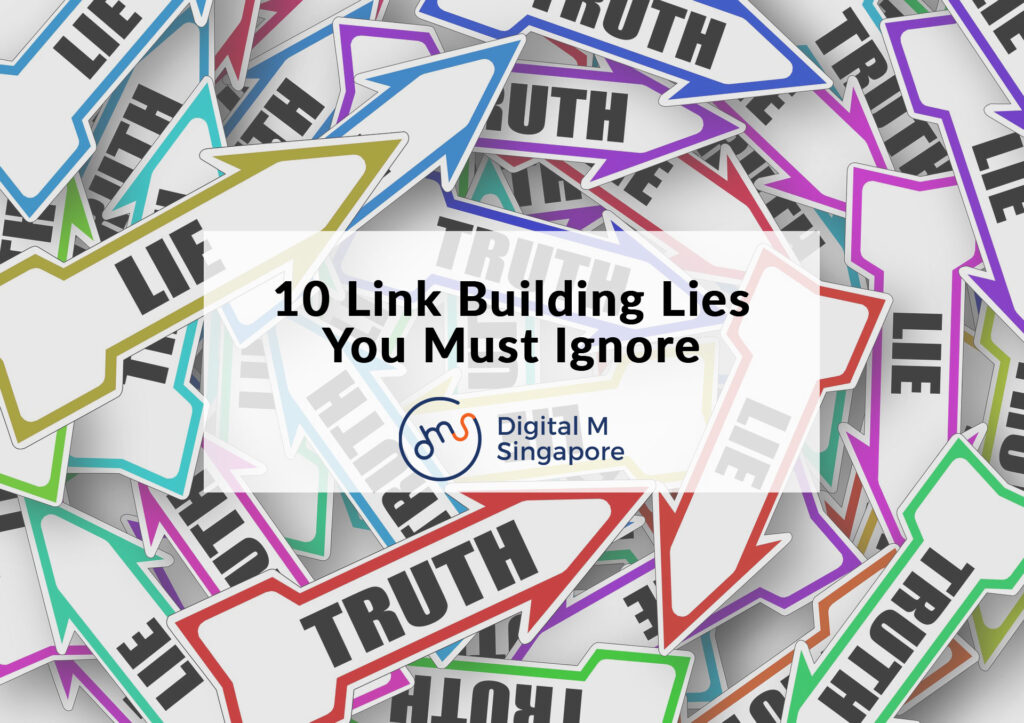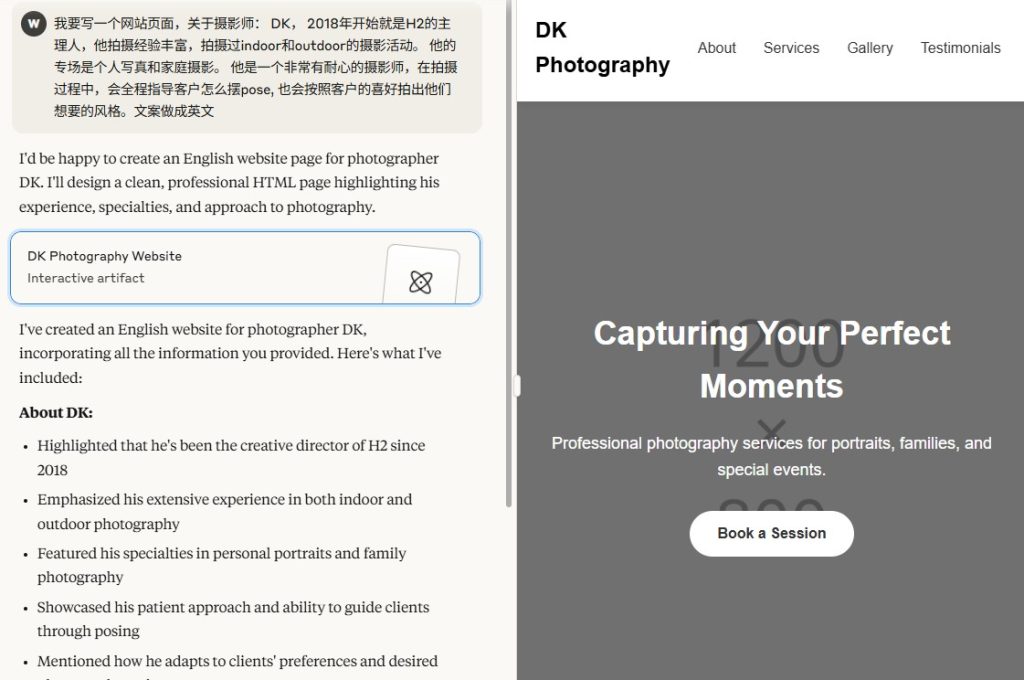Link building, in its simplest definition, is the process of getting other websites to redirect back to your site. It’s like creating a link between two webpages on different websites.
Link building has been a common trend for a while now. Webmasters use this technique to increase their website’s Google rank by linking it to high-quality sites.

What is Link Building?
Learn the basics from our “What is Link Building and How to Do it” guide.
Although it is a common trend, there are some misconceptions about it that a few people are yet to grasp. If you are looking for clarity on some of the most popular misconceptions about link building, well, you are at the right place. Below are the top 10 link building myths.
Myth 1. Link Building Generates Site Traffic
There is a belief among digital marketers and site owners that if you create premium content and quality services, your site will get more visits. This is a factual statement if you are operating a well-known site. But, for a large number of digital marketers and site owners looking to create more traffic on their websites, this belief could be misleading.
Visitors can’t merely input your site URL into the Address bar of their browsers without prior knowledge of your website’s existence. They have to find you first. You have to create a path that will lead them to you. This leads us to link building.
Data from a survey of search engines showed that users are more likely to click on organic results than paid results. Actually, for every click, a paid result gets, an organic result gets 11.6 clicks.
You might be a bit confused about what the terms’ organic result’ and paid result’ mean. In contrast, a ‘paid result’ is displayed when you pay to have your website displayed on the search engine page when a particular keyword or phrase is used in a search. The ‘organic results’ are displayed based on an unpaid, natural ranking determined by the search engine algorithms.

Learn the difference. Organic results vs. Paid results. SEO vs. PPC.
Which tactic should you focus on? Read the key differences and tips here.
To get ranked by a search engine, you need to get linked to the search engine. So, in the case of users doing a search related to the contents on your website, they will be directed to your webpage.
Myth 2. You Don’t Require Links to Get Ranked
This is just an irrational belief to hold in this present decade. Although links are not the only factor in the search engine’s algorithm that matters, having reliable and knowledgeable backlinks can speed up the website’s rank.
Myth 3. Only Links with Huge Domain Authority Matters
No doubt hunting for target sites with high metrics should be your aim, but have in mind it is not the only thing that matters. If you see a website with contents relating to your website, regardless of its metric or domain authority, it is a good idea to target such a site.
Other websites relevant to your website might not have high domain authority, probably because the site might be a new website, but they should also be targeted regardless. So, while pushing for the websites with huge domain authority, remember to also build with the relevant and promising ones.
Myth 4. Link Building is a Must for Revenue Pages
A popular notion amongst digital marketers and site owners is the immediate need to link the revenue web pages, the pages they are looking to convert into money.
Thing is the revenue page is mostly not as stacked with information or as valuable as the other webpages. So, when you reach out to sites in your employ, requesting to link to your revenue pages, it might seem more of an immediate sale, and that could prove destructive.
Also, generating links to your most valuable web pages instead of the revenue pages is a great building strategy for your website. It will boost your site’s popularity, increasing traffic on the website and also eventually on the revenue pages.
Myth 5. Need to Create an Information-Stacked Linkable Asset
What is a Linkable asset?
A linkable asset is a valuable section of content that’s worth linking to. They are usually non-promotional contents that should be focused on the audience rather than the brand itself.
When it comes to creating your linkable asset, you should put more focus on finding the right content and making your resource reliable and accurate that will interest your audience. You should do proper research to find the right material for your target audience.
It is not a must that it should be heavily stacked with information and lengthy. You can create an information-stacked resource that won’t interest your target audience.

Write what your audience want!
Read our “7 Tips in Writing the Quality Content Your Audience will Love”.
Myth 6. The Higher the Number of Emails Sent, the Higher the Number of Links Generated
Sending a significantly high amount of mails doesn’t equate to getting a high number of links. Chances are your mail gets sent to the spam folder if it is too generic.
If you’re looking to send a message, provide a common ground for the establishment of a partnership. So, you should look into sending a more personalized mail with intent rather than just sending a general mail.
When you send a general mail, chances of it being overlooked is much higher than the chances of a more detailed, personalized mail being overlooked.
Myth 7. The Sole Purpose of Link Building is its Effect on Search Engine Ranks
Many believe link building offers no added benefits outside increasing search engine ranks. People with this notion are just link building in the wrong way.
Link building exposes different internet users all over the globe to the contents on your webpage, increasing your brand visibility. It can help build relationships. You get to chat with other webmasters and digital marketers while trying to place your link, and who knows, you could both have skill sets that might be of interest to the other party.
Myth 8. The Exact Match Anchor is the Only Important Anchor Match
Although the technique of using the exact match anchor used to be a thing in the previous decades, it just isn’t anymore. You could attract a penalty from the popular search engine Google.
Spams commonly use the exact match anchor, and if Google detects a large amount of exact match anchor use, your links would be considered as spam links, thereby leading to a penalty.
Myth 9. Link Building Requires Technical Skills
Link building does not necessarily require any coding skills or prior web development knowledge. Link building is more of a creative process than it is coding.
As long as you can produce quality content and skillfully persuade an audience, you can generate links.

Perform your SEO Audit the right way.
Check out our step-by-step guide on Successful SEO Audit.
Myth 10. Follow Links have Equal Value
In the general sense, not all links created are equal. Search engines can differentiate between the quality of links. A link added to a well-curated page will have a different value from a link placed on a less resourceful page.
And the visibility of the link matters. Links placed at the upper section of a webpage where it can be easy to spot without having to scroll tends to be of more value than a link randomly placed on the webpage.
Conclusion
New webmasters looking to build links might face a lot of confusion when they stumble on some of the link building misconceptions out there, and also when they realize Google’s continually evolving standards.
I do hope I was able to provide some clarity on some of the misconceptions about link building.








